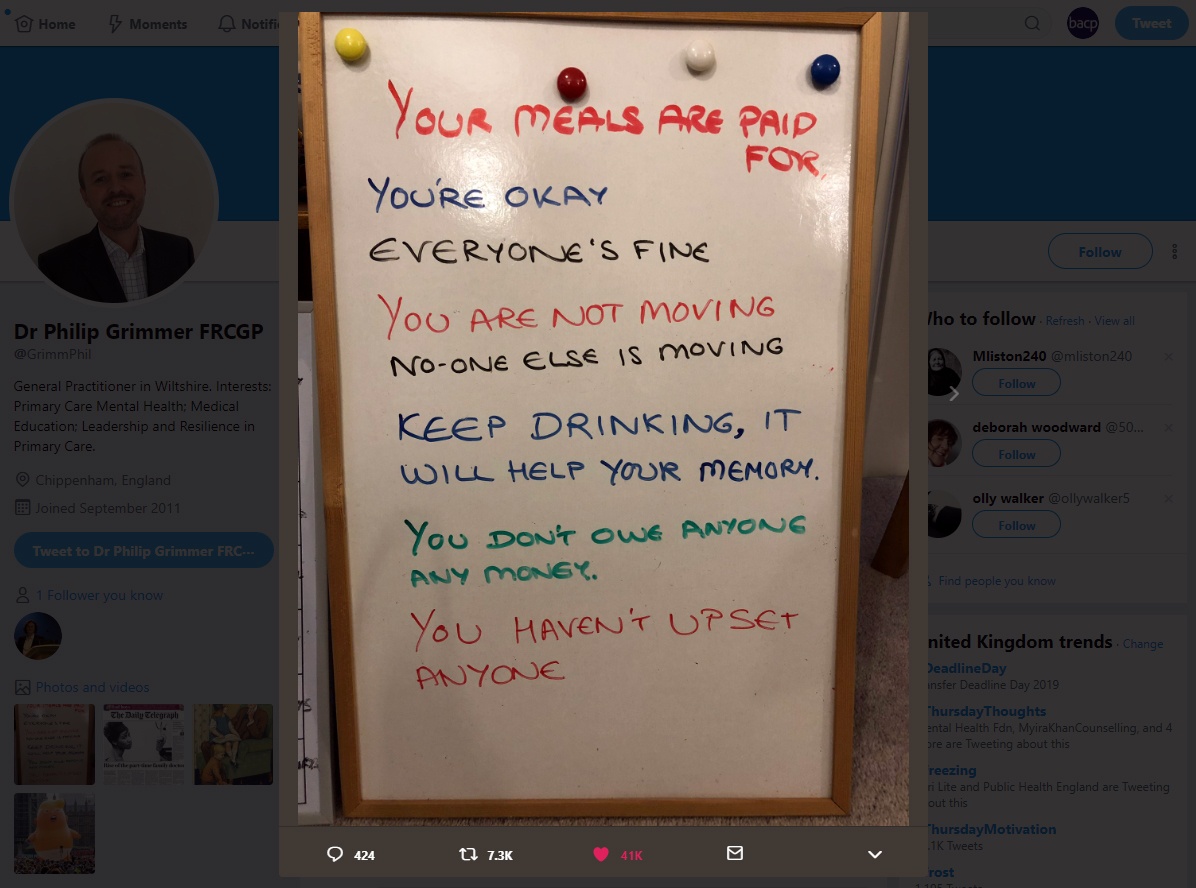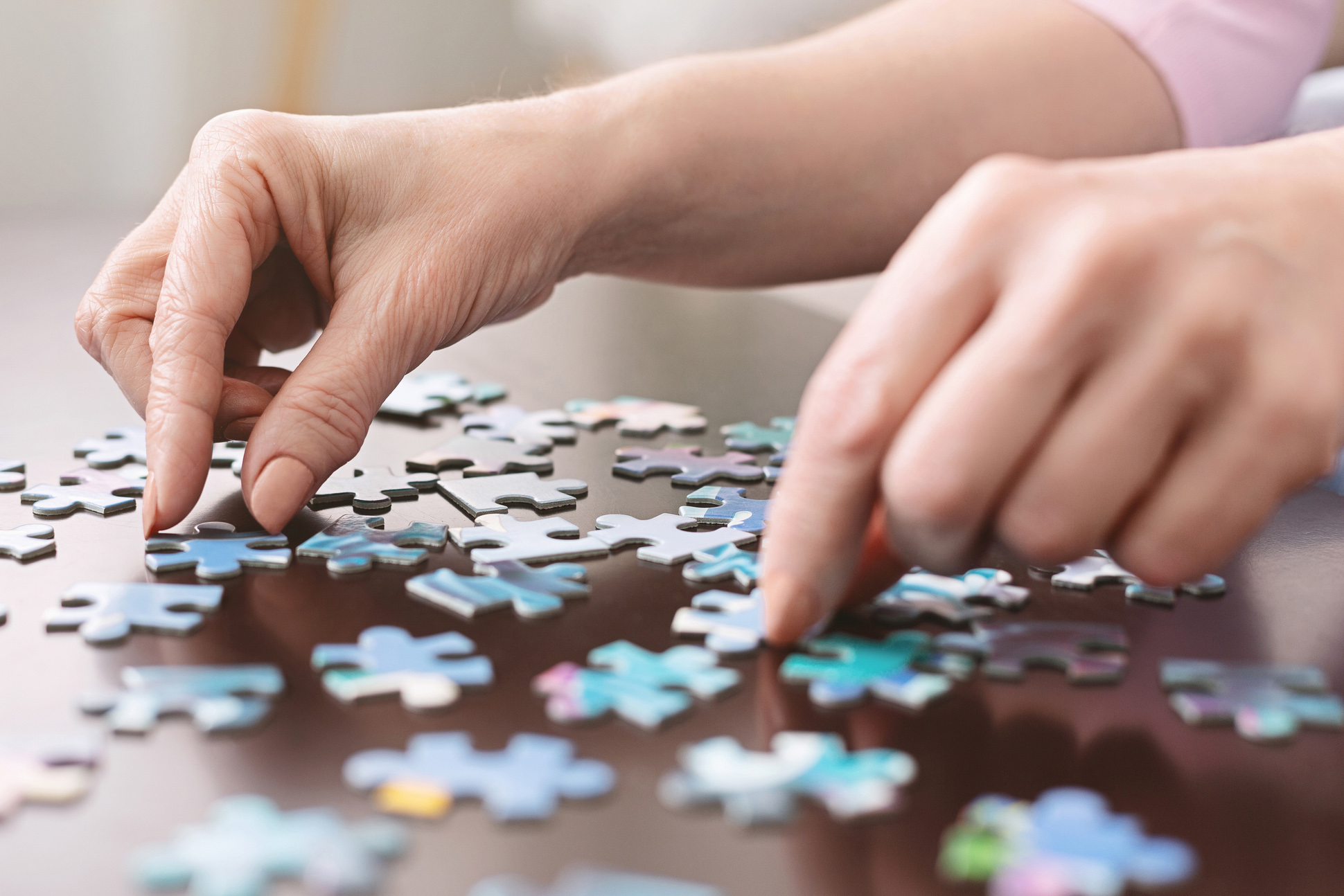A daughter has devised a creative way to reassure and comfort her mother, who has dementia.
The woman writes helpful and reassuring notes on a whiteboard in the sight-line of her elderly mum.
A photo of the board has been seen more than a million times on Twitter after it was shared by Wiltshire-based GP Philip Grimmer.
Dr Grimmer posted: “Words of reassurance left for an elderly lady with dementia by her daughter. A simple white board left in her sight line in her sitting room. Helped to reduce constant anxious phone calls.”

Anxiety
Sarah Baker, who is a member of BACP’s Older People Expert Reference Group, said: “It’s good to hear that this creative idea is working to reduce this lady’s anxiety.
“People who are losing the ability to retain and use information are often prey to repetitive worries such as these.
“The underlying anxiety is usually a sense of losing control over the events of daily living, which can be a very frightening experience.
“Things that used to be done without thinking are suddenly much harder or impossible to manage, and the person becomes more dependent on others to organize it all for them, hence the constant anxious phone-calls, which can be very stressful for family and professionals involved.
“There is a lot of assistive technology available to help people remain as independent as possible in their own homes despite failing mental faculties, but there is no substitute for personalised reassurance from a trusted carer.”
Person-centred
Sian Wareing-Jones is counsellor and family support co-ordinator with Jersey Alzheimer’s Association and a member of BACP’s Older People Expert Reference Group.
She said a lot of her clients and their families use such boards but their effectiveness depends on a number of things, including the person with dementia recognising these as being reassuring messages and them remembering to read the boards when they felt anxious or had other feelings.
"The messages need to be person-centred,” she said. “This last point is perhaps the most important point. I believe all our care and support needs to be person-centred.
“For instance, some people with dementia will not be the least bit worried about, for instance, their bills, but may be concerned about, for instance, who will water their plants or buy the food for their dog, or even collect the kids from school.
“Some people also appreciate recorded messages being played with similar reassuring messages, like ‘hi mum, it's time to take your pills now’.
“However, and most importantly, I believe none of this should ever take the place of a person actually being present with another.”
Touched people
Dr Grimmer’s tweet has been liked 41,000 times and retweeted more than 7,000 times.
He tweeted: “Wow! I thought this tweet would be seen by a few interested colleagues. It’s now been seen over a million times and clearly touched people’s hearts around the world. Feeling impressed by the power of Twitter to share ideas!
He added: “Also looking forwards to sharing all your responses with the lady who wrote this.”

Therapy can help those who care for loved ones with dementia
Barbara Windsor's husband Scott Mitchell says he has regular therapy following her diagnosis with Alzheimer's

“I valued myself and believed I could live well with dementia”
Counselling has helped Jacqui Bingham come to terms with living with Alzheimer’s

What therapy can help with
An A-Z list of issues and concerns which may be helped by talking to a counsellor.
